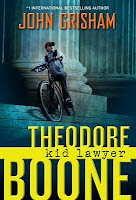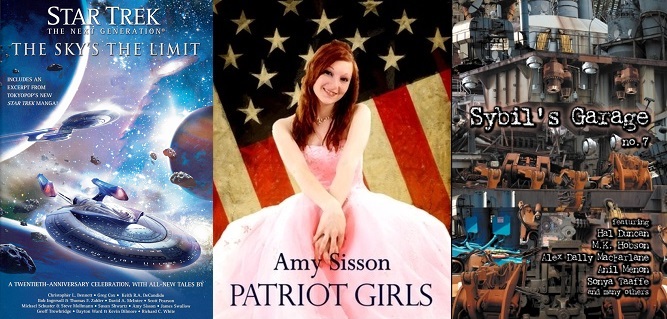 A slightly different version of the following review was first posted in a "Writing Children's Literature" online course I recently took from Western New Mexico University.
A slightly different version of the following review was first posted in a "Writing Children's Literature" online course I recently took from Western New Mexico University.
Ice by Sarah Beth Durst is a young adult fantasy novel consisting of a modern-day retelling of the fairy tale “East of the Sun, West of the Moon.” There is also a fair amount of “Beauty and the Beast” mixed into the story. Cassie loves her life as the daughter of an Arctic researcher and has no desire to experience everyday “civilization.” Her only complaint is that she misses the mother she believes to be dead. On her fateful 18th birthday, Cassie learns that she has a magical birthright, and that the Polar Bear King has come for her hand in marriage.
Major spoilers follow.
Cassie quickly decides to marry Bear in exchange for his arranging to free her mother from the trolls. Cassie soon comes to love Bear, and learns that he is a munaqsri, or magical creature that shepherds souls during birth and death. Shortly after learning she is pregnant, she unwittingly breaks Bear’s bargain with the trolls by looking upon his human face, and he must leave her to marry the troll princess. Cassie swears that she will rescue Bear and bring him home.
I absolutely loved the first part of this book, when Cassie explores the Arctic, goes to live with Bear, and falls in love with him. I did not enjoy the middle of the book as much, when Cassie treks alone across all sorts of terrains and meets several munaqsri in her quest to find Bear. To me, this part of the book felt a bit like a D&D quest: go here, see this creature, set a new goal and go there, see that creature, and so on. It felt a little bit as though pages needed to be filled up the first section and the conclusion, and also because the pregnancy needed to be at a certain point at a certain time in the plot. To be fair, though, I don’t know how I would have done this differently if I’d written it.
Regardless, I’m happy to say that I found the ending quite satisfying, and I loved that Cassie took action in such a determined way. I felt that this story truly achieved a modern update to a fairy tale (or two). It was somewhat unconventional; in most fairy tales, the “happily ever after” comes before the relationship is consummated, but in this case Cassie marries Bear and becomes pregnant in the first half of the book. It is important to note that there is no hint of rape -- Bear makes perfectly clear that sexual relations are not a condition of the marriage. I found the progression of Cassie and Bear’s relationship refreshing in comparison to the usual wispy, dreamy “happily ever after” trope.
I chose to read this book because I love stories about Arctic environments, polar bears, and survival. (I also admit that I just love that cover!) I’m glad I read it, because the writing is good; I enjoyed the insertion of Cassie’s modern-day sensibilities into the unusual settings; and I especially loved the way Cassie decided to mix human scientific research with munaqsri magic.
Read more!
Thursday, August 12, 2010
Ice
Pretty Dead
 A slightly different version of the following review was first posted in a "Writing Children's Literature" online course I recently took from Western New Mexico University. There are no major spoilers in this review.
A slightly different version of the following review was first posted in a "Writing Children's Literature" online course I recently took from Western New Mexico University. There are no major spoilers in this review.
Pretty Dead is a short young adult novel by Francesca Lia Block, the popular (and, to some, controversial) writer of the “Weetzie Bat” books. Pretty Dead is narrated by Charlotte, a vampire who regrets her decision to become one because she feels so alone, having elected to leave William, the male vampire who created her. Out of boredom, Charlotte has returned to high school as a teenage girl, and has befriended a young couple named Emily and Jared. Charlotte is devastated when Emily apparently commits suicide, and is so distracted by Emily’s death that she barely notices when she herself begins to exhibit symptoms of becoming a mortal human once again.
I read this book because I have enjoyed much of Block’s writing in the past, and I was curious to see her take on the vampire fad. I usually find her writing to be sensual, free-spirited, and compelling. I was curious as to whether Block had anything new to say about vampires, but I’m afraid I found this story to be very clichéd. I couldn’t help but think of Pretty Dead as a cross between one of Christopher Pike’s less successful books and you-know-who’s angst-ridden Twilight series. In particular, I was annoyed that Charlotte and William had experienced so many historical events first hand. I felt it was wildly unrealistic, for instance, that they were present at the nuclear bombing of Hiroshima in 1945. Block later offers a weak explanation as to why William seemed drawn to troubled spots, but I really don’t think two European/Caucasians could have passed as tourists in Japan at the height of World War II, no matter how attractive they were.
I also didn’t buy that even though Charlotte’s narration reveals her age, her outlook remains primarily that of a teenage girl, with the same sort of “end of the world” intensity that we often see portrayed in teenage love stories. Overall, this book felt to me like a cursory treatment of the vampire trend by an author who doesn’t really care.
Read more!
Tuesday, August 10, 2010
Theodore Boone, Kid Lawyer
 A slightly different version of the following review was first posted in a "Writing Children's Literature" online course I recently took from Western New Mexico University.
A slightly different version of the following review was first posted in a "Writing Children's Literature" online course I recently took from Western New Mexico University.
As far as I know, “Theodore Boone, Kid Lawyer” is John Grisham’s first attempt at a book for younger readers. Obviously, he is well known for his mainstream legal thrillers, several of which have been made into movies. This book follows eighth grader Theodore Boone, an only child parented by attorneys, who is already handing out legal advice to his classmates and even to adults. (As almost all of Theo's advice consists of telling his "clients" to go talk to real lawyers, I presume this is not illegal but I did wonder.)
In some ways, I worry that I am not capable of being entirely fair to this book, because so much of it rubbed me the wrong way that I am probably overlooking some good qualities that would actually appeal to kids. My biggest issue was with Theo's inconsistent voice. He's an eighth-grader who hacks into his parents' legal databases, who follows trials the way other kids follow baseball, and who explains legal terms such as "double jeopardy" and "mistrial" to his classmates. However, he also tells the reader that "the smart people in charge of educating all the children in the town" decided to gender-segregate their classes, and he blurts out that he doesn't understand what the judge means when he says that he could hold Theo in contempt for not revealing information important to an ongoing trial. Hmmm. First, I would have thought that Theo would know the term "school board". Second, Theo knows every legal term out there except contempt of court?
(And hey! Assuming my memory is correct -- I've already gotten rid of the book so I can't easily check -- and Theo goes to a public school, wouldn't his lawyer parents have screamed bloody murder about gender segregation? I sure would, especially considering that Theo gets permission for his class to go watch the opening day of a trial, which means all boys and no girls get to go on this little field trip. That really ticked me off. And is it realistic that most of Theo's eighth-grade classmates are not allowed to have cell phones at all?)
[Some spoilers below.]
In any case, the book opens with Theo attending the first day of what passes for a high-profile murder trial in his small-ish town. The defendant has been accused of murdering his wife, and everyone believes he is guilty but the prosecution has a weak case. In the meantime, Theo becomes involved when a boy from the local shelter where Theo volunteers tells him that his cousin, an illegal immigrant, witnessed something that would prove the defendant’s guilt. Theo wrestles with the problem, and ultimately all that happens is that he talks to his uncle (a former lawyer), and then his parents, and then a judge. Unlike in The Firm or even The Client, Theo doesn't use his ingenuity to think up a solution to the problem. That may be realistic considering his age, but it's just boring. At the very least, I would have expected a Grisham-like scene in which a bad guy chases Theo to tell him to stop snooping, but the most we get is a scary-looking guy who glares at Theo from across the courtroom once or twice. A mistrial is declared and that’s the end of the book. It’s very anticlimactic. If any of the characters were particularly interesting it would mitigate this somewhat, but the whole book feels antiseptic.
I have to admit, I tend to think this is yet another case of an author, agent, and/or publisher thinking it would be a good idea to dip into the lucrative YA market without actually considering whether the material would hold any particular appeal. I also think that better editing would have resulted in a better book, at least in terms of keeping Theo’s voice on track.
Read more!



